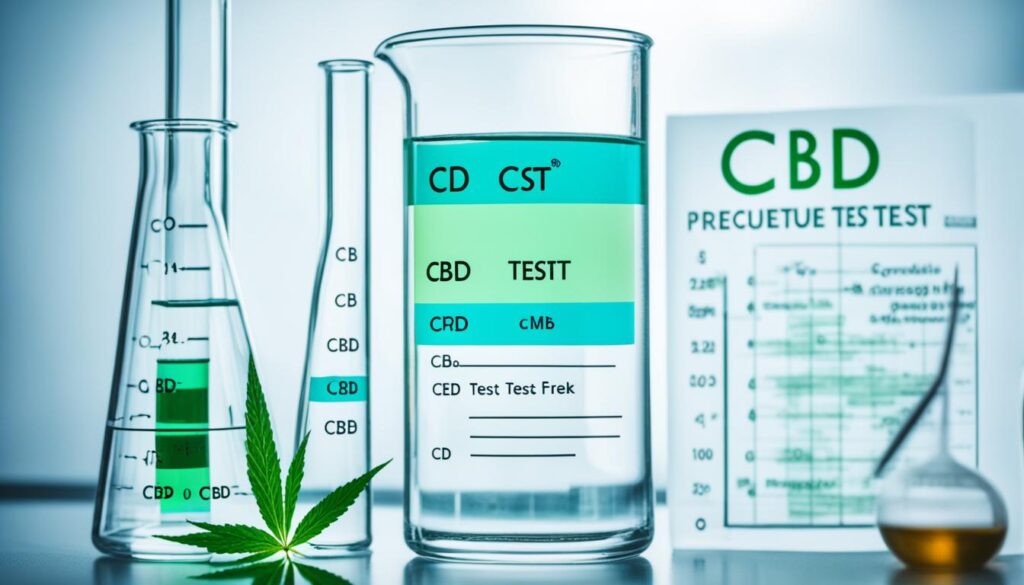Did you know various factors can change how long CBD’s effects last in your system? Knowing this is vital, especially with drug tests or medical use in mind. Let’s dive into what affects CBD’s stay in your body. This will help you use CBD wisely.
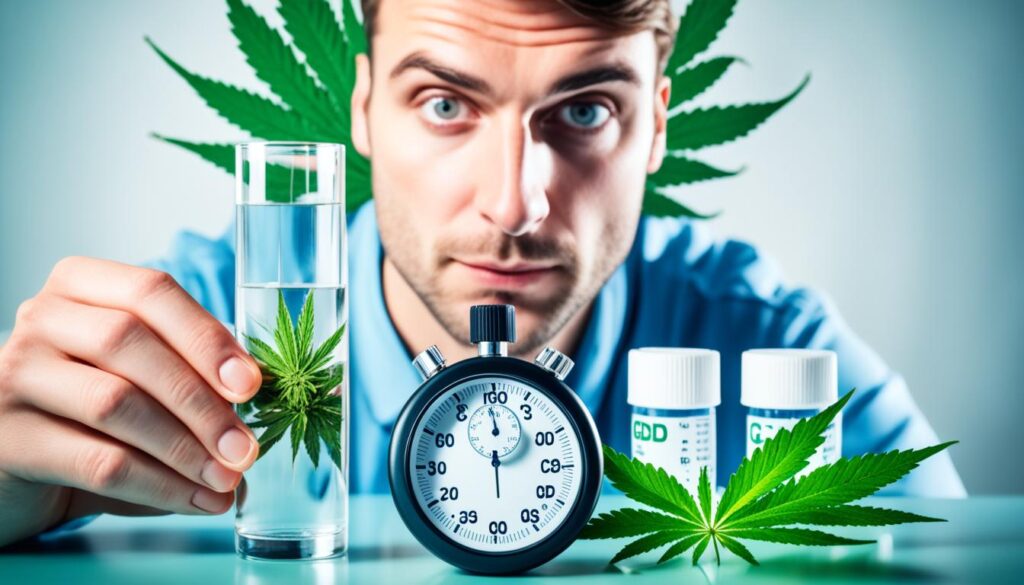
Key Takeaways:
- CBD metabolism can be influenced by factors such as diet, the type of administration, and frequency and dosage of use.
- Eating high-fat foods can increase CBD exposure and absorption, leading to a longer duration in the body.
- Medications processed in the liver and liver disease can alter CBD metabolism, potentially resulting in drug interactions.
- The frequency and amount of CBD use can impact its presence in the system, with chronic use leading to longer detection times.
- The type of CBD administration, such as smoking or inhaling, can affect how long it stays in the system.
How and What You Eat
The food you eat has a big impact on how CBD works in your body. Knowing how your diet affects CBD can improve its absorption and effectiveness.
Eating CBD on an empty stomach may cause it to leave your system quickly. This happens because food makes your body produce enzymes. These enzymes help break down CBD better.
Yet, eating isn’t just about timing. Eating high-fat foods can boost CBD in your blood1. When you mix CBD with fatty foods, it works better and has a stronger effect.
“Eating high-fat foods can enhance CBD absorption and increase its exposure in the bloodstream, resulting in a more pronounced effect.”
A 2019 study showed a big finding. CBD’s effects were 14 times stronger with high-fat meals1. This shows why your diet matters when you use CBD, especially with high-fat foods.
The Influence of High-Fat Foods on CBD Absorption
High-fat foods change how CBD is absorbed. With such foods, CBD bonds with fats. This helps CBD get into your blood easier, boosting its effects and how long they last.
High-fat foods also affect how long CBD stays in your system. It means CBD could work longer, making its effects last more.
Knowing how your diet influences CBD’s performance is key. With information about high-fat foods and CBD, you can make better choices on how to use it.
Reference
| Study | Year | Findings |
|---|---|---|
| Somers et al. | 2019 | CBD exposure and absorption increased by 14 times when taken with a high-fat meal |
Medications Processed in the Liver and Liver Disease
The liver is key in breaking down CBD because it has special enzymes. These enzymes break down medications and CBD, then remove them from the body. But, when someone has liver disease or is taking certain medications, it can change how well this process works.
If someone has liver disease or uses certain meds, it could affect how their body handles CBD. Liver disease can change how these enzymes work. This might lead to drug interactions or negative reactions. Also, because the liver processes CBD, it could react with other meds processed in the liver too.
To show what can happen with liver disease and drug interactions regarding CBD, look at this table:
| Scenario | Potential Outcome |
|---|---|
| A person with liver disease takes CBD | Altered CBD metabolism, potential for increased CBD levels in the body |
| A person takes medications metabolized by the liver along with CBD | Potential drug interactions, altered metabolism of both CBD and the medications |
People with liver issues or those on certain meds should talk to their doctors before trying CBD. Healthcare providers can help understand possible drug interactions. They can also suggest the right CBD dosage and how to take it.
Knowing how liver enzymes and disease affect CBD can help people make smart choices. This can help avoid unwanted side effects from using CBD.

Expert Insight
“Liver enzymes play a critical role in the metabolism of CBD. When liver disease or medications processed in the liver are present, it can significantly affect the metabolism of CBD, potentially leading to drug interactions and altered CBD levels in the body. It’s crucial for individuals with liver disease to work closely with their healthcare providers to ensure safe and effective CBD use.” – Dr. Emily Johnson, Hepatologist
Frequency of Use
If you use CBD often, it can build up in your fat. This means it might stay in your body for weeks. Especially if you’re a heavy user.
People who use a lot of CBD regularly might find it stays in their system longer. That’s because it releases slowly from fat. So, it’s in the body for a longer time.
It’s tricky to get CBD out of your system, especially for those who use it a lot. Knowing this is key. It matters when looking at drug test results.
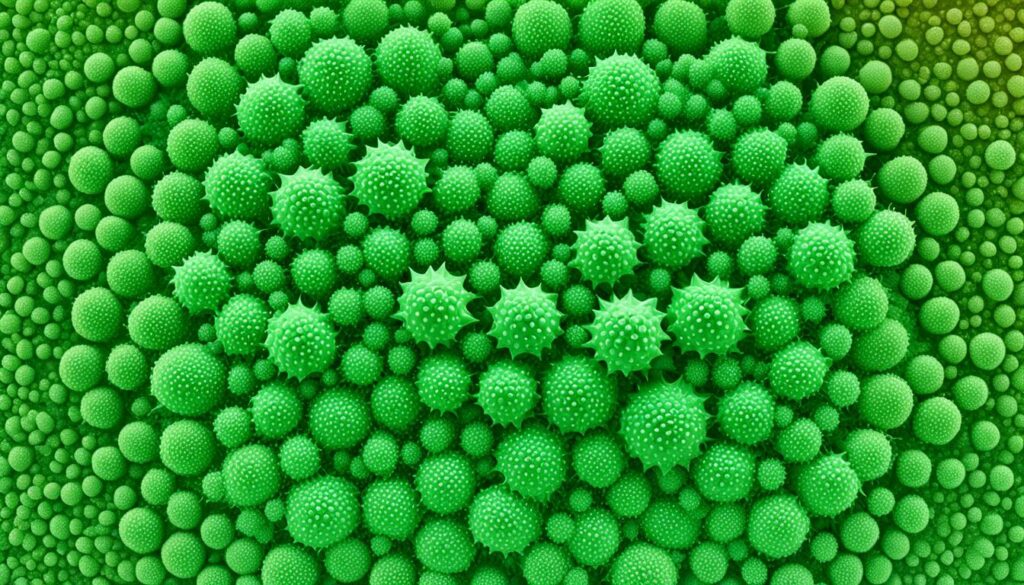
| Frequency of CBD Use | Accumulation in Fatty Tissues | Longer Detection Times |
|---|---|---|
| Heavy and Frequent Use | High | Weeks |
| One-time or Acute Use | Low | Shorter durations |
How Much You Use
The amount of CBD you take matters a lot. Higher doses stay in your system longer. For example, a study showed taking 1.35 milligrams of CBD was found in the blood for about six hours. But larger amounts could be detected for more time.
Remember, the amount of CBD influences how long it stays in your body. A bigger dose means your body takes more time to get rid of it. Yet, smaller doses may leave your system quicker.
Choosing the right CBD dose needs considering a few things. Think about your weight, how severe your condition is, and your personal tolerance. You should start with a small dose and then slowly increase it to find what works best for you.
Factors Affecting CBD Dosage and Presence in the System
The dosage and presence of CBD in the system can be influenced by various factors:
- Individual metabolism: Your metabolism plays a big role. It affects how fast or slow your body handles CBD. Fast metabolism means quicker elimination, while slow metabolism may keep it around longer.
- Body mass index (BMI): Your body’s muscle-to-fat ratio affects how CBD is spread and gotten rid of. People with higher BMI might store CBD in fat, releasing it slowly.
- Frequency of use: If you use CBD often, it may build up in your body. This can make it detectable for longer than if you hardly use it.
- Metabolic rate: How quickly your body processes stuff can change how fast CBD leaves your system. A faster metabolic rate means CBD won’t stick around as long.
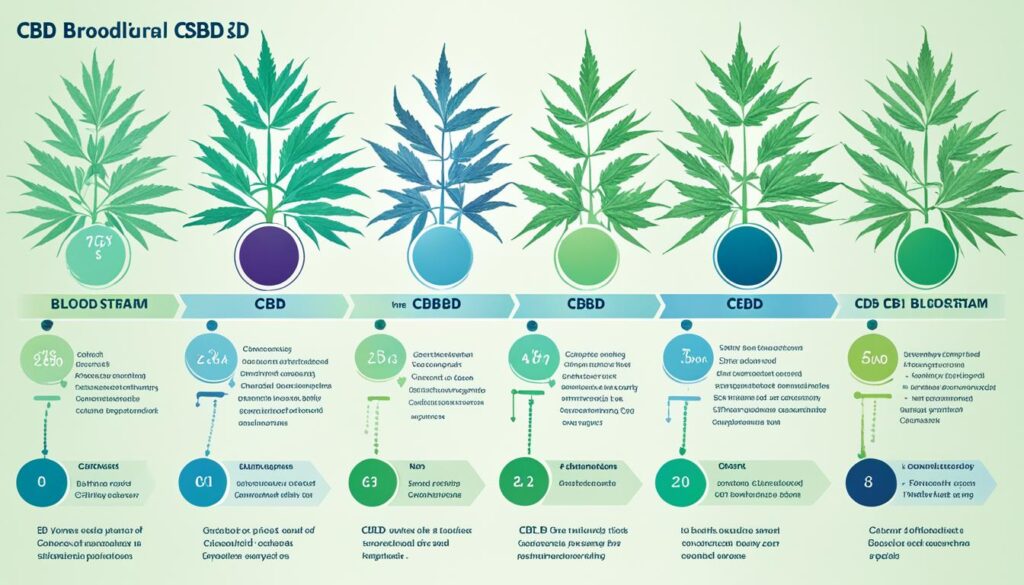
| CBD Dosage | Detection Time in Blood |
|---|---|
| 1.35 milligrams | Approximately 6 hours |
| Higher doses | Longer periods of time |
Type of CBD Administration
The way you take CBD matters a lot. It affects how long it stays in your system. Let’s dive into various CBD methods and their effects on CBD’s stay and bioavailability.
Smoking and Inhaling CBD
Smoking or inhaling CBD is a common choice. This method sends CBD quickly into your blood through the lungs. This means CBD doesn’t stay long in your system with this method.
But remember, smoking anything, CBD included, could pose health risks. Always chat with a healthcare pro before smoking it.
CBD Oil and Longer Presence
Another popular method is using CBD oil. Taking CBD oil means it goes through your gut and liver. This leads to a slower CBD elimination, making it stay longer in your body.
Studies show that CBD oil could stay in the body for 2 to 5 days. The slow elimination is because of how the body processes and removes CBD oil. Yet, how long it stays can change based on dosage, use frequency, and personal metabolism.
Bioavailability Considerations
When comparing CBD methods, bioavailability is key. Bioavailability means how much CBD gets into the blood for your body to use.
Picking the right CBD method depends on many things like what’s easy, what you like, and the effects you want. While smoking CBD is fast to leave, CBD oil lasts longer. Knowing the bioavailability of methods can help pick the best one.
| Administration Method | Bioavailability | Potential Duration of CBD Presence |
|---|---|---|
| Smoking or Inhaling CBD | High | Shorter |
| CBD Oil (Oral Administration) | Medium to Low | Longer |
Smoking or inhaling CBD has higher bioavailability than oral methods like CBD oil. This means your body uses more CBD when inhaled, possibly starting effects quicker.
But, your metabolism, how much you take, and how often you use it also play roles. These factors affect how long CBD stays in you, no matter how you take it.
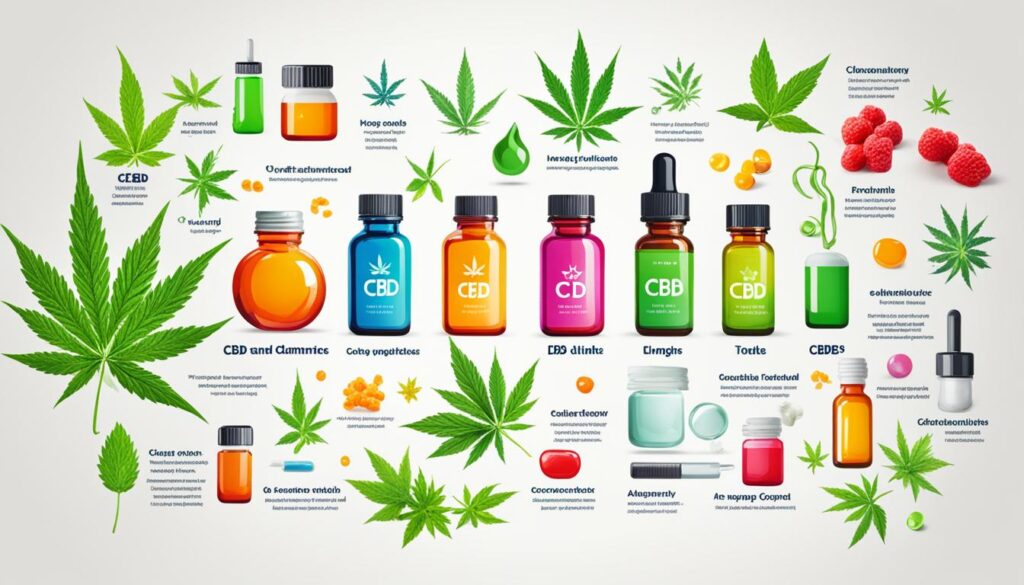
Looking into different CBD ways helps people make smart choices. Whether you prefer the quick exit of inhaling CBD or the lasting effect of CBD oil, understanding their impacts on bioavailability and stay time helps find the best method for you.
CBD in Drug Tests – Urine, Hair Follicle, Saliva, Blood
Drug tests look for CBD in the body for many reasons. There are different tests for checking CBD. Each kind has its own time window for spotting CBD.
Urine Tests
Urine tests are very common. They can find CBD for three days. But THC, present in some CBD items, might show up in urine for 15 days.
Hair Follicle Tests
Hair tests offer a longer detection time than other tests. They can spot THC from CBD use for at least 90 days.
Saliva Tests
Saliva tests also look for CBD for up to three days. They’re quicker and less invasive compared to other tests.
Blood Tests
Blood tests can catch CBD for up to 36 hours. They’re good for checking very recent use of CBD.
When thinking about CBD and drug tests, know each test type has its own pros and cons. The time CBD can be detected varies by the test.
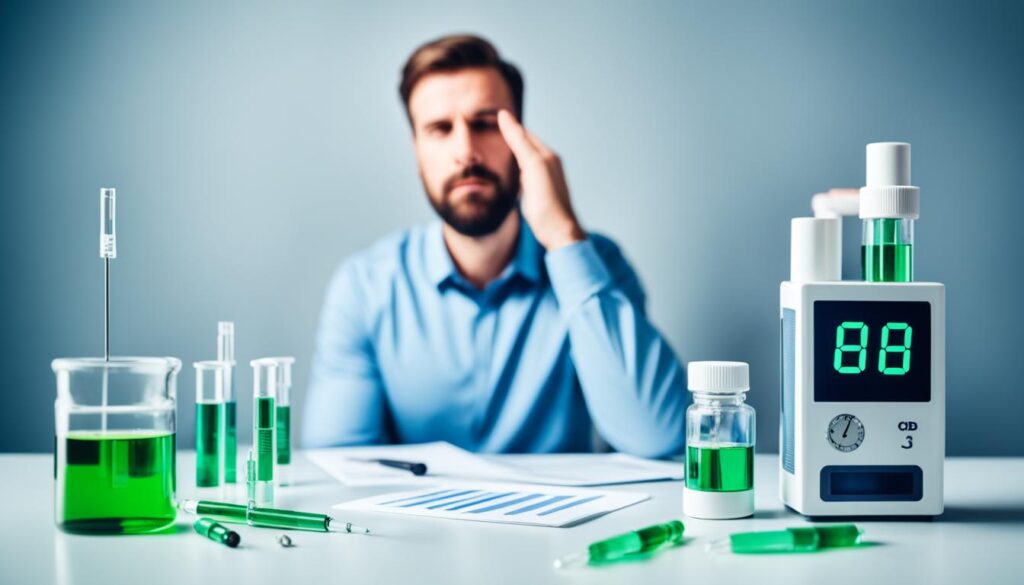
| Drug Test Type | Detection Window for CBD |
|---|---|
| Urine Tests | Up to 3 days |
| Hair Follicle Tests | At least 90 days |
| Saliva Tests | Up to 3 days |
| Blood Tests | Up to 36 hours |
Factors Affecting CBD Testing Results
Testing CBD products accurately can be tricky. There are several things that can change the results. Let’s look at what affects CBD testing reliability.
CBD Presence in Different Products
CBD comes in many forms like oils and edibles. Each one has different CBD amounts. Knowing the exact CBD content is key for accurate testing.
Lack of CBD Product Regulation
The lack of strict rules for CBD products is a problem for testing. Since there’s no standard, it’s hard to know the THC level in CBD items.
Trace THC in CBD Products
Even small amounts of THC in CBD products can affect testing results. This can accidentally show a positive result for THC, not just CBD.
The Impact of Variable THC Levels in Different Types of CBD
The type of CBD product also matters. Whether it’s full-spectrum, broad-spectrum, or isolate affects the result. Each has different THC levels, changing the test outcome.
In summary, many things can change how CBD tests go. The product type, lack of rules, tiny THC amounts, and THC variability are key factors. Knowing these helps get accurate results when testing CBD products.
CBD Withdrawal Symptoms and Addiction
Heavy CBD users can face withdrawal after stopping. Symptoms include abdominal pain and tremors. They also might feel anxious and irritable.
A history of drug abuse, psychological issues, early drug use, and bad home relationships can lead to CBD addiction.
Slowly stopping and getting help from professionals is key for people hooked on CBD.

Understanding CBD Withdrawal Symptoms
Stopping CBD can lead to withdrawal. Symptoms differ but often include pain and muscle tremors.
“The withdrawal symptoms experienced by heavy CBD users can be comparable to those of other substances,” explains Dr. Johnson-Arbor, a renowned addiction psychiatrist.
Besides physical issues, users may feel anxious, irritable, and have mood swings.
Dealing with CBD withdrawal is tough, but support and expert advice can make it manageable.
Factors Contributing to CBD Addiction
Many factors can lead to CBD addiction. Knowing them helps in treating it.
- Family history of drug addiction: A family history of substance abuse ups the risk of CBD addiction.
- Underlying psychological disorders: Conditions like anxiety or depression can fuel addiction.
- Early drug use: Starting CBD young might increase addiction chances.
- Problems with relationships at home: Strained personal relationships can make people turn to CBD.
Understanding these factors and tackling them with proper treatment is crucial for overcoming CBD addiction.
Getting Help for CBD Addiction
Overcoming CBD addiction is vital. It is important to reach out to mental health experts for help. They will assess you and find the right treatment. This might be inpatient or outpatient rehab, based on what you need.
Inpatient rehab offers a structured setting to focus on recovery. It includes therapy, counseling, and other treatments. Outpatient rehab, however, allows you to live at home. You can keep doing your day-to-day tasks while getting treatment.
Recovery homes are another helpful option for those beating CBD addiction. They offer a supportive place to live. Here, you can get ongoing help, learn to cope in healthy ways, and build a support network. Recovery homes are key for a smooth return to normal life.
Remember, it’s crucial to seek professional help for CBD addiction. By getting into treatment programs, you get the support needed. This helps you take back control and reach long-term sobriety.
